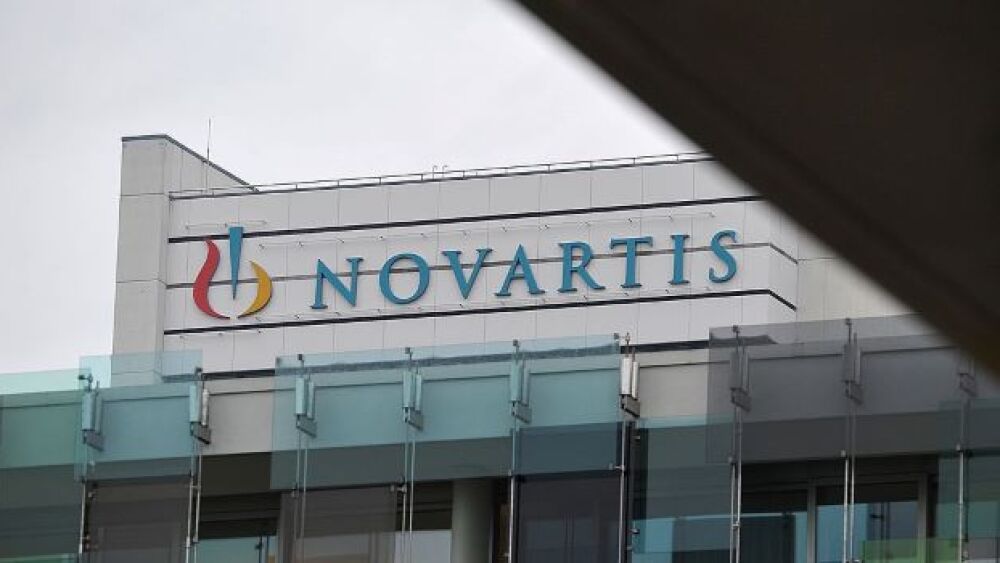In a Phase III trial comparing Novartis’ experimental iptacopan against AstraZeneca’s Soliris and Ultomiris in paroxysmal nocturnal hemoglobinuria, iptacopan demonstrated superiority.
Courtesy of Harold Cunningham/Getty Images
New Phase III data shows Novartis’ experimental iptacopan demonstrated superiority against AstraZeneca subsidiary Alexion’s Soliris and Ultomiris in paroxysmal nocturnal hemoglobinuria (PNH).
Iptacopan is an investigational, first-in-class, oral targeted factor B inhibitor of the alternative complement pathway. The data adds supporting evidence to the potential of the drug, if approved, to become the first oral monotherapy for PNH.
“These results demonstrate iptacopan is superior to anti-C5 therapies in providing clinically meaningful increases in hemoglobin levels without the need for blood transfusions in PNH patients with residual anemia despite prior treatment with anti-C5s, and a significant proportion of these patients reach normal levels of 12g/dL or more,” a Novartis spokesperson told BioSpace.
PNH is a rare, chronic and serious complement-mediated blood disorder. The complement system is a part of the immune system that improves the ability of antibodies and phagocytes to attack and clear the body of pathogens. It is part of the innate immune system.
The Novartis spokesperson told BioSpace the drug is “under investigation for multiple indications — including PNH, IgAN, C3G, atypical hemolytic uremic syndrome (aHUS), and immune complex membranoproliferative glomerulonephritis (IC-MPGN) — where there is significant unmet need.”
The company plans to discuss the next steps with regulators worldwide “and plan to include these results in our regulatory submissions for iptacopan for the treatment of PNH. Global filings are anticipated in 2023,” the spokesperson added.
If approved, iptacopan would have an advantage in the market for PNH in that it would be the first-available oral drug.
Iptacopan vs. Soliris and Ultomiris
Iptacopan was compared to AstraZeneca/Alexion’s Soliris (eculizumab) and Ultomiris (ravulizumab). Both drugs are anti-complement component 5 (C5) monoclonal antibodies, approved for PNH and atypical hemolytic uremic syndrome, generalized myasthenia gravis and neuromyelitis optica spectrum disorder.
Although all data was not released, topline results demonstrated a statistically significant and clinically meaningful increase in the percentage of patients receiving 200 mg twice-a-day of iptacopan. This hit hemoglobin-level increases of 2 g/dL or more from baseline within needing blood transfusions at 24 weeks compared to anti-C5 therapies, which was a primary endpoint of the trial.
The study also showed a statistically significant and meaningful increase in the percentage of patients in the iptacopan cohort achieving hemoglobin levels of 12 g/dL or more without needing blood transfusions at 24 weeks compared to anti-C5 therapies, another primary endpoint. The drug was well tolerated.
In 2021, Soliris and Ultomiris raked in a combined $2.562 billion in sales.
AstraZeneca and Alexion aren’t just waiting for competitors to catch up. In September, Alexion announced an interim analysis of the Phase III ALPHA trial of danicopan, an investigational, oral factor D inhibitor, to be used with Ultomiris or Soliris in PNH.
The interim results demonstrated positive high-level results in these patients who experienced clinically significant extravascular hemolysis (EVH).
In addition to hitting the primary endpoint of change from baseline at 12 weeks, the study demonstrated key secondary endpoints, including transfusion avoidance and change in Functional Assessment of Chronic Illness Therapy (FACIT) Fatigue score.





